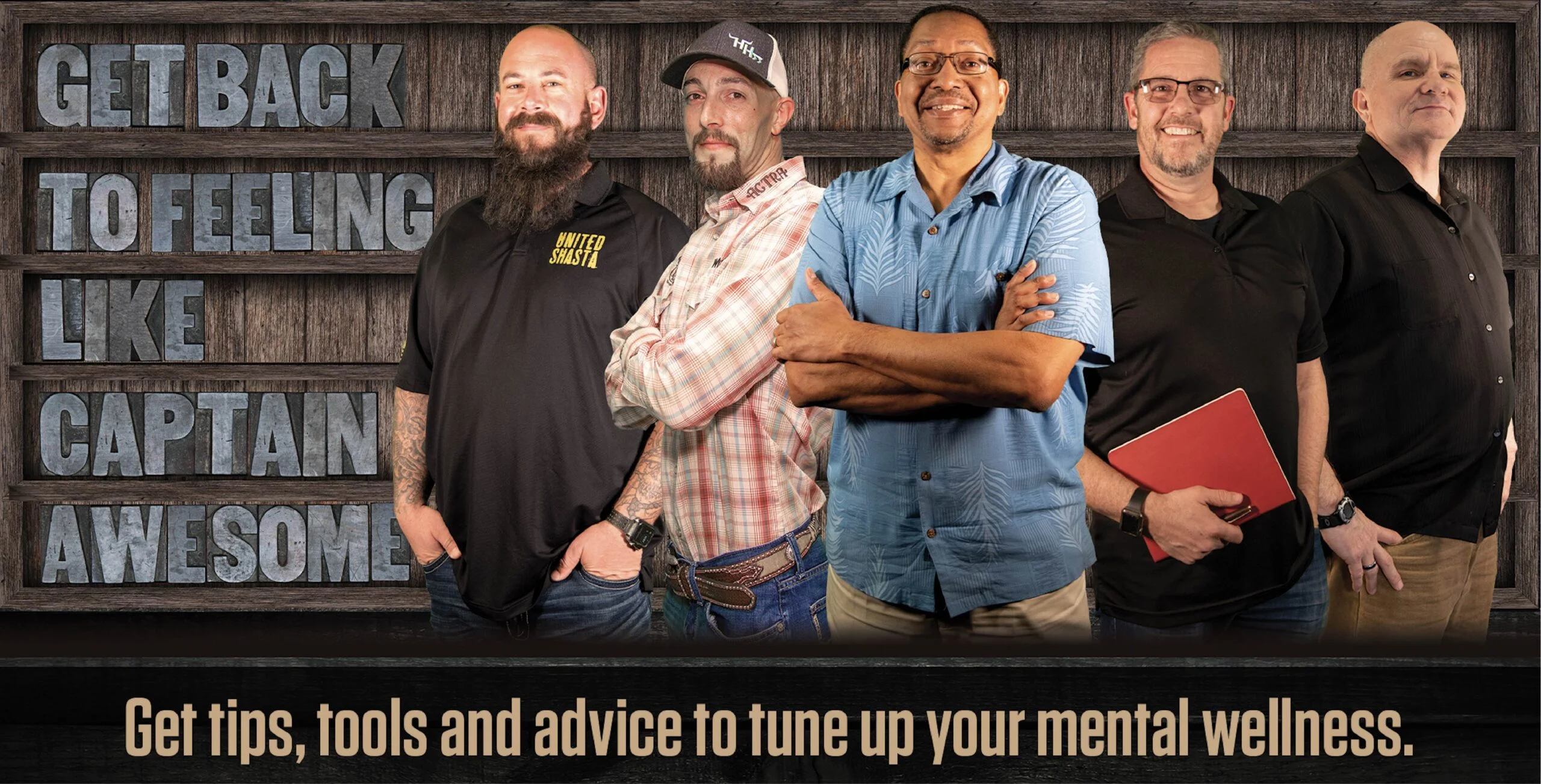STIGMA & MEN'S MENTAL WELLNESS

When the topic of mental health is raised, the conversation often centers around women. However, men’s mental wellness is an important and often overlooked health concern.
Both men and women experience mental health challenges. However, there are some notable differences between the issues affecting them and the factors that influence those issues.
Part of what makes us human is our ability to feel our feelings and process our emotions. When we’re happy, we want to smile. When we are feeling frustrated or angry, our bodies tense up, and we may raise our voices. And when we are feeling sad, we may want to cry.
When emotions are avoided or ignored, it can have a negative impact on our health. Suppressing emotions can lead to depression and anxiety, and for men especially, it can increase their risk of suicide.
One of the biggest reasons men may not be more vocal about their mental health is the stigma attached to depression or anxiety.
STIGMA
Stigma refers to negative attitudes and beliefs about people with behavioral health needs. Stigma not only discourages people from seeking help, but also can prevent people, families, and communities from connecting to systems of support.
Stigma is also a major obstacle to preventing suicide. It can impact the reporting and recording of suicides and the circumstances leading up to a suicide, such as a previous attempt or death in the family.
HOW STIGMA AFFECTS MEN
The stigma around men’s mental health is rooted in several factors such as social norms, self-perception, and cultural beliefs. Stigma can make it harder for men to access the help they need.
For men, being told to “man up” or “act like a man” is something they learn in childhood, and it stays with them into adulthood. Over time, men learn to turn off their emotions or cope with their feelings in a way that is “more acceptable” for males. It creates a toxic cycle, which can be hard to break.
Cultural norms and gender stereotypes have been around for generations. They are often harmful, especially for males. Men who express their emotions may be viewed as weak. As a result, many men neglect to show their emotions because they’re afraid of the reaction. Suppressing emotions and feelings can be detrimental to men’s mental health. These damaging societal expectations can keep them from seeking support and treatment.
When men feel like they need to conform to these antiquated stereotypes and the idea of “masculinity and manhood,” they may feel restricted when expressing or admitting their emotions, seeking support, or pursuing treatment.
WHAT CAN BE DONE
When men feel more comfortable seeking support from health professionals and loved ones, it can ease the impact of those strong feelings, improve quality of life, and reduce their risk of suicide.
Though this may seem easier said than done, men can choose to be more comfortable expressing their emotions freely, without fear or reservation.
Often, men will feel a flicker of sadness or grief, and just as quickly shut that feeling down. To open up more, you need to accept these emotions, and feel them. Identify the way you’re feeling by naming the emotion and try to figure out what is causing you to feel that way. Grant yourself permission to express those emotions.
Finding hobbies that allow opportunities to reflect on feelings is a great way to cue into your emotions. Therapeutic activities such as fishing, hiking, walks in nature, cooking, art, or music can reduce anxiety, provide opportunities for real conversation and meaningful connection with others, and bring enjoyment.
Seeing a therapist is one of the best ways men can learn to open up about their feelings. Therapy is a safe space to be vulnerable without judgment from anyone else. It can help you learn how to feel your feelings and cope with your emotions in a more healthy and productive way.
If you’re dealing with mental health distress, it might be time to ask for help. Getting treatment early can keep a small problem from growing into a more serious mental health condition later.

HOW MEN CAN HELP
The stigma and landscape surrounding men’s mental health is changing as more well-known male figures are speaking out and sharing stories about their own mental health needs and challenges.
As Shasta County guys, you can be a part of that change! You can help improve the way we talk about mental health:
- Become an advocate for taking care of your mental wellness and ending stigma.
- Share the benefits of connecting with others through hobbies or by volunteering.
- Help our community realize that reaching out for help is not a weakness but a sign of strength.
- Set an example at work or home by talking to other men about emotions and dismantling harmful stereotypes.
STAND AGAINST STIGMA
For more information, programs, and resources related to stigma, please visit:


